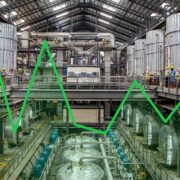| বাংলায় পড়ুন | Researchers and Reporters: Shama Sultana Anika Taieba |
A nation’s commercial and financial situation is impacted by economic factors, which are elements that have a broad effect on an economy’s development. The general flow of the economy, purchasing power, demand and supply, and family and organizational income are all impacted by economic considerations. Economic factors include things like inflation, interest rates, currency exchange rates, and unemployment rates in a nation. Determining long-term objectives and the best approach is made easier for a business by analyzing economic considerations.
When it comes to a business’s future, economic factors are crucial. These factors have an impact on both the market dynamics and a company’s internal operations. An organization can better anticipate trends, develop strategies, and weather market swings by properly analyzing economic factors. We will study the impact of six key economic factors on businesses today.

- The rate of currency exchange
A currency’s exchange rate is established by comparing the value of the currency of one nation to that of another. This is important for companies who deal in import and export. A country’s exports, for instance, can be sold overseas at a low price if its currency depreciates, but then imports become more costly.
Business Impact:
- The business’s profit or loss is determined by import-export.
- Can increase the importance of domestic production.
- Consumer goods’ selling prices are impacted.
- Workers’ wages
Businesses’ labor costs and customers’ purchasing power are linked to wages. Wage rises provide consumers with more purchasing power, which raises demand for the goods. On the other hand, it may potentially raise production costs.
Business Impact:
- Its demand in the market rises in tandem with salary growth.
- When wages fall, costs fall as well, and a recession may hit the economy.
- To sustain profits, businesses must modify their prices and expenses.

- Interest rates
A nation’s central bank sets interest rates, which impact the cost of borrowing and the economy’s cash flow. Low interest rates encourage economic investment, whereas high interest rates make borrowing more challenging.
Business Impact:
- Borrowing and business growth are impeded by high interest rates.
- Investment and commercial risk-taking are stimulated by low interest rates.
- Asset values and the stock market are impacted.
- Supply and Demand
One of the key components of the economy is supply and demand. Inflation happens when supply is limited and demand is high. Conversely, low demand and surplus supply cause the value of the currency to decline.
Business Impact:
- Production costs rise as a result of inflation.
- High supply results in lower prices for items.
- Businesses stay stable when supply and demand are balanced.
- Tax Rates
Tax rates have an impact on corporate profitability and economic growth in a nation. Low taxes allow firms to grow, whereas high taxes can be expensive for them.
Business impact:
- Investment is discouraged by high tax rates.
- Low tax rates encourage innovation and business expansion.
- New businesses are encouraged by tax concessions in particular industries.
- Unemployment
An indicator of a nation’s economic health is unemployment. People’s spending power declines with rising unemployment, which lowers corporate revenue. Low unemployment, on the other hand, raises market demand and workforce wages.

Business Impact:
- A high unemployment rate lowers consumer demand.
- Productivity is increased when unemployment is low.
- Plans for businesses must take the state of the economy into account.
Economic variables that are essential to business include demand and supply, interest rates, wages, currency exchange rates, tax rates, and unemployment. Businesses can control risks, make money, and preserve long-term stability by carefully examining and utilizing these elements.

























Comments